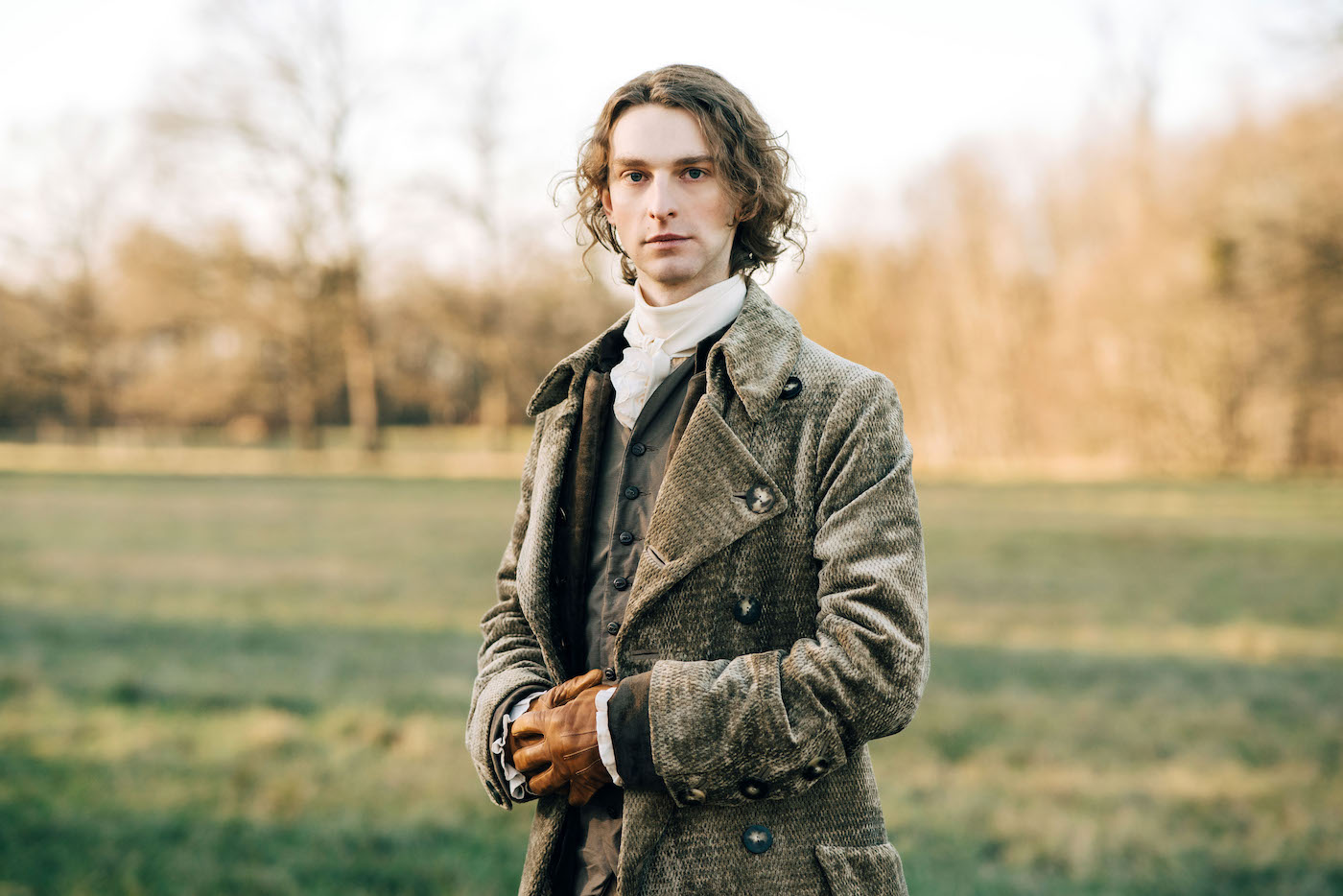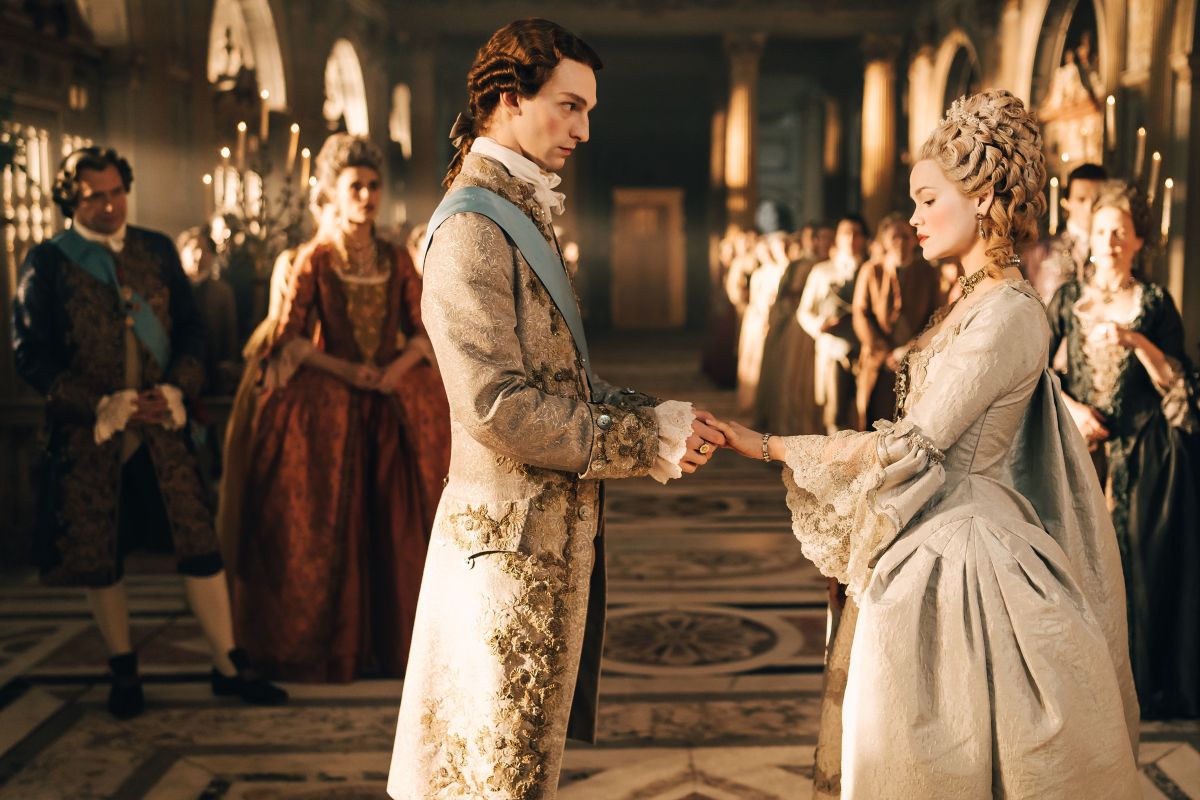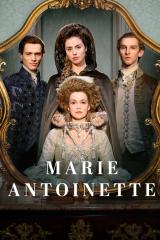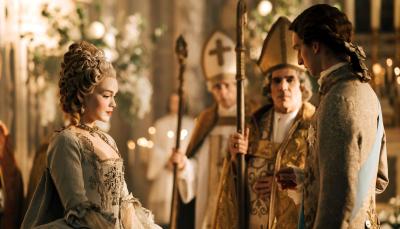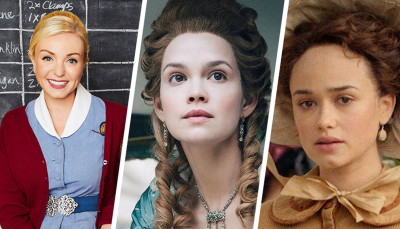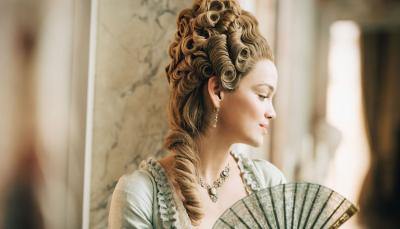In the 'Marie Antoinette' Series Premiere, the Famous French Queen Is a Teen With Big Dreams
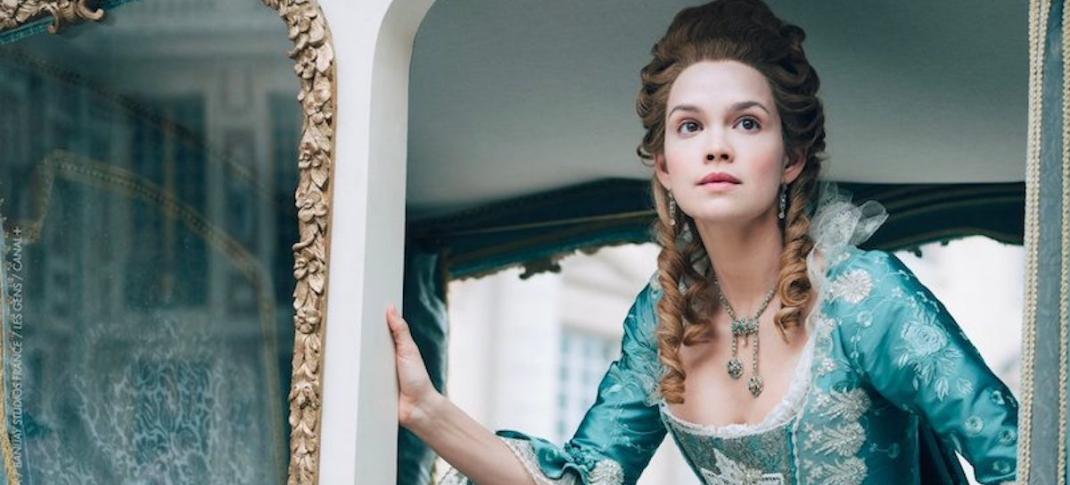
Even though she was born over 250 years ago, our modern-day popular culture is still obsessed with Marie Antoinette. Last of the French queens, overthrown and ultimately beheaded by her own subjects, her story is one of almost unimaginable highs and unbelievably tragic lows. Yet, most recountings of her life tend to remember her badly, usually as some flavor of vacuous airhead, elitist clotheshorse, or self-involved bitch, whether or not those depictions are fair to the woman she was. (Look, the woman most likely never even said, "let them eat cake!" okay!!)
This is probably why PBS's latest period drama Marie Antoinette feels like such a breath of fresh air. Yes, the series premiere is full of the same gorgeous gowns, sumptuous sets, and political scheming that we've come to expect from any story set in this particular time and place. However, it also embraces many elements we don't: Humor, a dash of grotesque honesty about various facts of life during the 18th century, and a unique narrative perspective that focuses on its titular leading lady at the very beginning of her time in France.
We first meet the young Archduchess when she is barely a teenager herself — the real Marie Antoinette was just 14 when she came to France — a playful, sparkling girl who understands the ridiculousness of the elaborate lessons in French etiquette she's being forced to endure (her sly "is that good enough for Versailles" has definite shades of Meghan Markle to it). But she doesn't recognize the true horror of what she'll have to lose to serve her family's ambition until her carriage pulls out of her drive, and she is completely, irrevocably alone.
Is it likely the future Queen of France arrived in her new kingdom alone, with no entourage or permanent guards, and locked in a carriage with only a dog for company? No, not really. But it makes for good drama. (Which I suspect with be the mantra of many aspects of this show.)
As is true of most series premieres, there's a lot of table setting going on in this episode, ranging from establishing the personality of its titular heroine to putting the pieces in place for her life in France. In "The Slap," the young archduchess is nervous and desperate to do what she's been told is her duty, though she is heartbroken at having to leave everything she cared about (including her adorable dog!) behind at the Austrian border.
We see a lot of the new Dauphine meeting her various French relations, including a charmingly smarmy King Louis XV (James Purefoy), her awkward husband-to-be Louis the Dauphin (Louis Cunningham), who arrives to greet her holding a dead rabbit; the Count of Provence (Jack Archer), Louis's younger brother who bullies him nonstop and resents that he will get to be king; witchy aunts Adelaide (Crystal Shepherd-Cross) and Victorire (Caroline Piette) who use their position as French princesses to belittle everyone around them, and Lamballe (Jasmine Blackburrow), a widowed Italian cousin who will (spoiler alert) become Marie-Antoinette's closest confidante. And, of course, there's also Madame du Barry (Gaia Weiss), King Louis XV's mistress, who wields an outlandish amount of power at court.
Of the lot, Cunningham stands out for his portrayal of Louis, whose awkward, cringe-worthy behavior and aversion to basic things like hygiene make you wonder if he'd ever have managed to find a wife if he didn't have a crown to offer her. He does his best not to engage with his new young bride. He repeatedly pushes her away even during the most embarrassing public moments (their wedding, their public bedding ceremony after their marriage) that might have at least made them uneasy allies, if not outright friends. Instead, he refuses to speak to her and stuffs a bolster between them for their wedding night. Hardly any girl's teenage dream, is what I'm saying.
But it is apparent from this premiere's first moments that Marie Antoinette belongs to Emilia Schüle, who effortlessly balances the young princess's effervescent spirit and winsome charm with her evident inexperience and loneliness. Schüle's expressive face contains multitudes, conveying the slightest shift in the young woman's emotions from joy to fear to apprehension and allowing her to speak even when her character has no lines. She is a Marie Antoinette who is young and frightened, desperate to glom on to anyone who shows her the slightest hint of empathy or kindness. (The moment she hugs her new French head of household is heartbreaking in its naivete.)
Maybe she's one of the most privileged people in the world, with riches most of her countrymen could never imagine. But she's also completely alone and will be forced to play a role, to some extent at least, for the rest of her life, no matter what her true feelings might be. French princesses, after all, do not cry in public, show weakness, or intimate in any way that the unearned cruelty from their new in-laws bothers them. They pretend not to notice that they have zero chemistry with the man they're meant to wed (given that Louis and Marie Antoinette famously did not consummate their marriage for years, this tracks!) and act like it's fine that no one has bothered to give either the future King or Queen of France the most rudimentary of knowledge about how sex works.
But the show notices and makes it clear to its audience that for all its pomp, majesty, and over-the-top fun, this story is a tragedy, a tale of two scared teenagers trapped by their destinies into futures neither of them chose. (Destinies that, as we all know, don't end well for either of them.)
Much of this Marie Antoinette was touted as a feminist spin on the famous queen's story. Still, in this premiere episode, it's unclear how that particular angle will come to play in this series, which has so far seen the young Dauphine struggling to adjust to the French court and speedily married off to Louis. Perhaps with her position secure and duty clear (produce an heir as soon as possible), we'll see her find her voice and/or a way to assert herself more frequently. (After all, I think it's obvious that if anyone's going to fix the many issues in their young marriage, it won't be her husband.)
But it's hard not to feel charmed by this young woman, who seems so bright and genuinely likable. Who's doing her best and is hardly the scandalous minx of so many rumors — and previous onscreen adaptations. And perhaps that's the most shocking thing about this version so far: How heartbreakingly ordinary this Marie Antoinette is before history happens to her.


